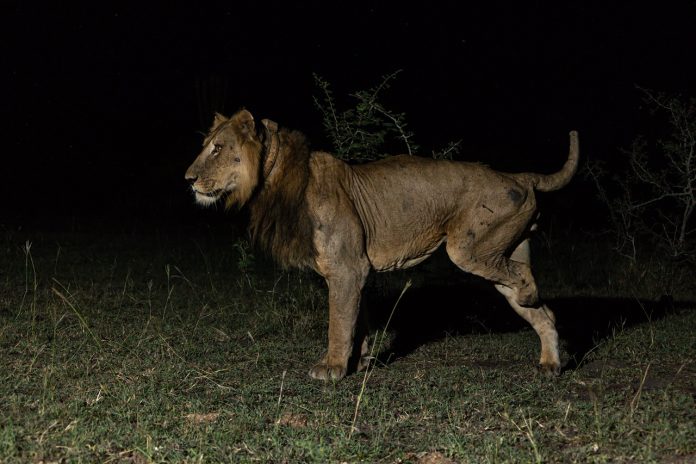
A remarkable swim by two lion brothers across a predator-filled African river has set a new record, documented in a study by Griffith University and Northern Arizona University.
Dr. Alexander Braczkowski, from Griffith’s Center for Planetary Health and Food Security, led a team that captured this incredible event.
They filmed the lions using high-definition heat detection cameras on drones as the lions crossed the Kazinga Channel in Uganda at night.
This work was done under the supervision of the Uganda Wildlife Authority, and the findings were published in Ecology and Evolution.
One of the lion brothers, a 10-year-old named Jacob, is well-known for his incredible survival story. He has faced numerous life-threatening situations, including losing a leg.
“Jacob has had the most incredible journey and really is a cat with nine lives,” Dr. Braczkowski said.
“He has been gored by a buffalo, his family was poisoned for the lion body part trade, he was caught in a poacher’s snare, and he finally lost his leg in another poaching incident involving a steel trap.”
Despite these challenges, Jacob and his brother Tibu have survived in a national park facing high human pressure and poaching rates. Their lion population has nearly halved in just five years.
Their swim across the channel, filled with hippos and crocodiles, is a record-breaking feat and a true testament to their resilience. Previous swims by African lions have ranged from 10 to a few hundred meters, often ending in death by crocodile attacks.
Why did Jacob and Tibu risk the dangerous kilometer-long swim in the first place?
“It’s likely the brothers were looking for females,” Dr. Braczkowski explained. “Competition for lionesses in the park is fierce. They lost a fight for female affection before the swim, so they probably risked the journey to reach the females on the other side of the channel.”
“There is a small bridge to the other side, but the presence of people likely deterred them.”
Dr. Braczkowski has been conducting a long-term study of African lions and other predators in Queen Elizabeth and other Ugandan National Parks. He is the scientific director of the Volcanoes Safaris Partnership Trust’s Kyambura Lion Project and has been working with the Ugandan Government since 2017 to build scientific capacity in the wildlife department to census lions and other predators.
This swim is a direct result of his research, which has highlighted imbalanced sex ratios in lion populations.
“Jacob and Tibu’s big swim is another important example of how some of our most beloved wildlife species are making tough decisions just to find homes and mates in a human-dominated world,” Dr. Braczkowski said.
This incredible event underscores the resilience of these lions and the challenges they face in their natural habitat.



